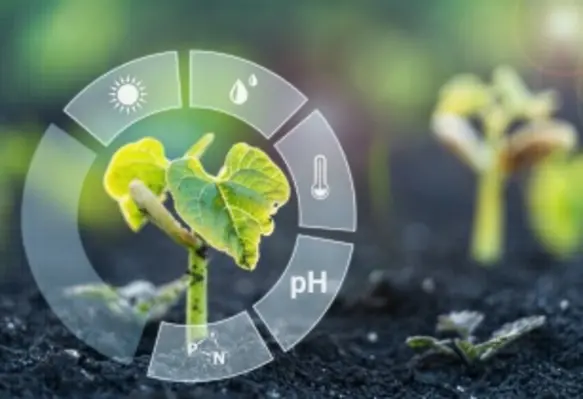An international research collaboration is planning to explore new ways of monitoring crop growth with biodegradable sensors which can be composted at the end of their lifespan
The US$2.2mn CHIST-ERA project, called Transient Electronics for Sustainable ICT in Digital Agriculture, is led by researchers from the University of Glasgow and supported by colleagues in Canada, Finland, Poland and Switzerland.
Over the next three years, the project partners will work together to develop a new type of environmentally-friendly modular sensor system.
They will find ways to create devices built from sustainable and degradable materials with the aim of cutting down on the growing problem of electronic waste.
The devices will have two parts – a solar-powered patch which can be applied to the surface of the leaves of crops to measure key indicators of their growth and an electronic module which can wirelessly transmit the information collected by the patch to a central computer.
The team aims to make the patch completely biodegradable, and capable of nourishing the soil once it reaches the end of its period of usefulness. To do so, they will investigate how compostable electronic components might be made from everyday materials like rice husks, fibrous proteins like wool, or biodegradable polymers like starch or cellulose, combined with conductive metal nanoparticles made from materials like copper and zinc.
They will also explore how those compostable components could be powered by similarly biodegradable organic photovoltaic materials to support the patch’s tasks of monitoring pH, temperature and bio impedance, with energy stored in a biodegradable super capacitor. Super capacitors provide a sustainable, non-toxic alternative for conventional batteries.
At the same time, the team will also be working to develop an electronic module equipped with wireless communication technology. A key priority of the design for the module is that it will be reusable and repairable to help minimise waste.
Professor Ravinder Dahiya, of the University of Glasgow’s James Watt School of Engineering, is the project’s coordinator.
Professor Dahiya said, “The Internet of Things has huge potential to revolutionise every aspect of human activity, from home lives to global industry. Harnessing the power of the internet of things is particularly attractive in farming, where the challenges of growing crops as we adapt to the unpredictable effects of climate change will require close monitoring of fields and quick responses to problems to maximise crop yields.
“However, the proliferation of digital devices that underpin the internet of things will is also leading to a massive expansion in digital waste. As much as 80% of our electronic devices currently end up as waste. As potentially dangerous materials in components like batteries and printed circuit boards degrade, they create hazards to the environment and to human and animal health which can last for decades.
“What we’re setting out to do with this project is to build hardware which is designed from the start to be disposable without creating problematic waste. In fact, the waste materials from our sensors will help to grow future crops of the plants they once monitored.
The research is funded by URKI in the UK, FRQNT in Canada, Academy of Finland in Finland, NCN in Poland and SNSF in Switzerland.





